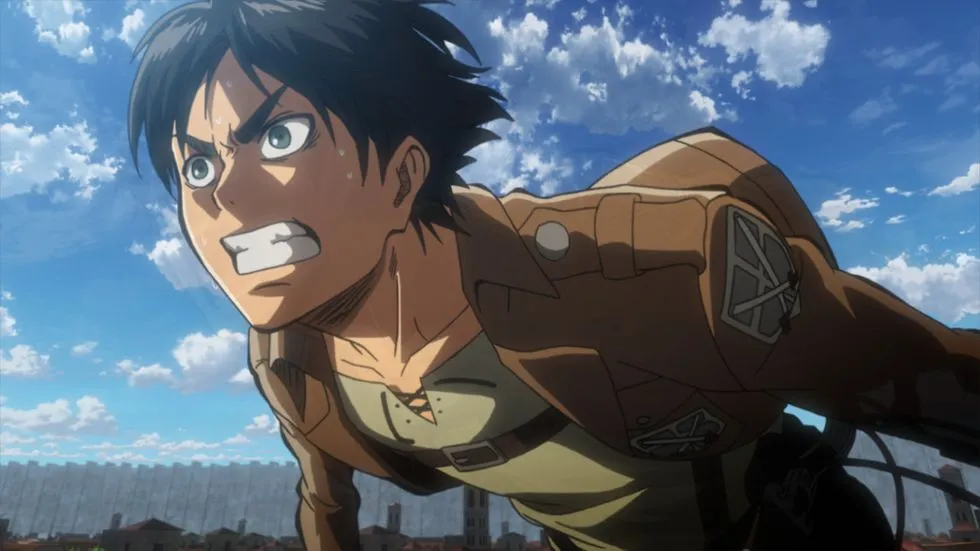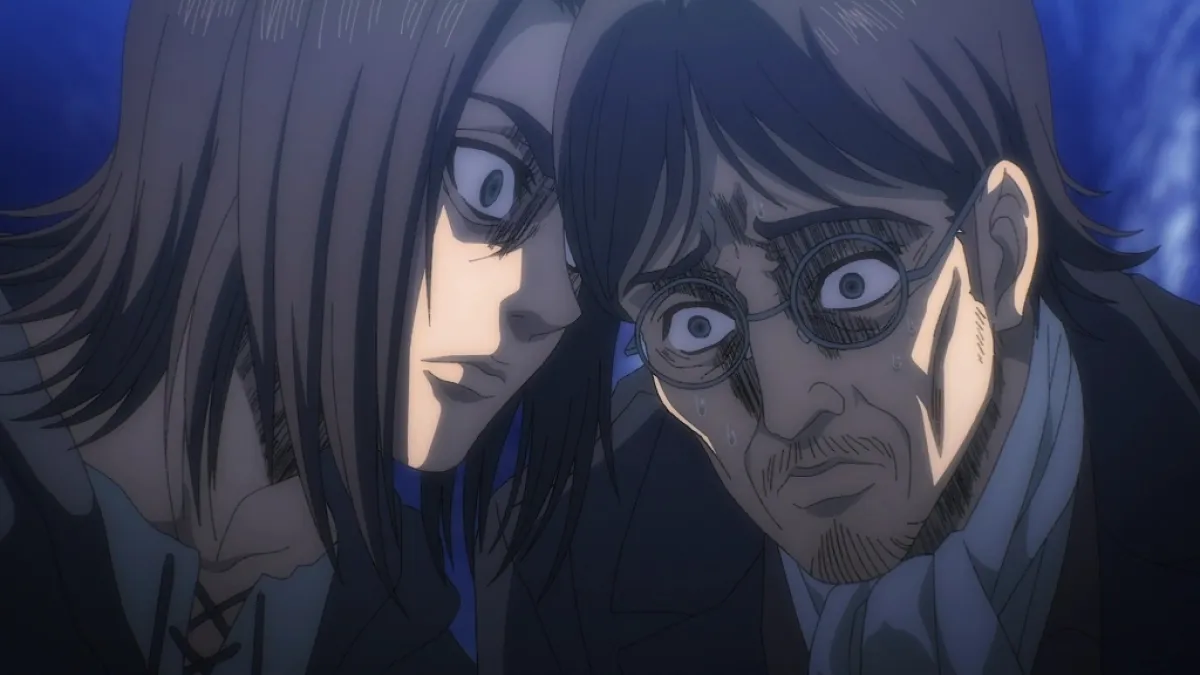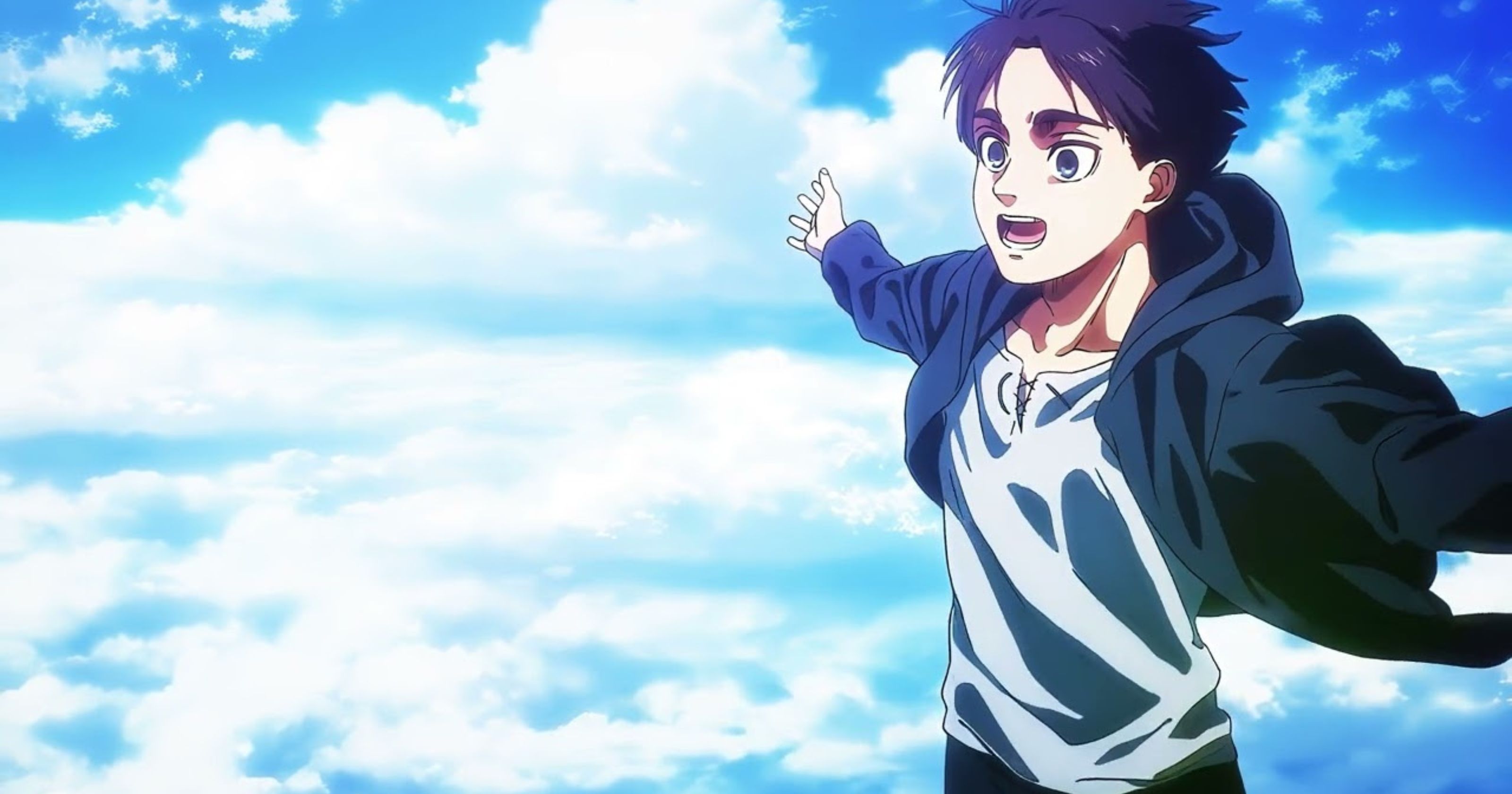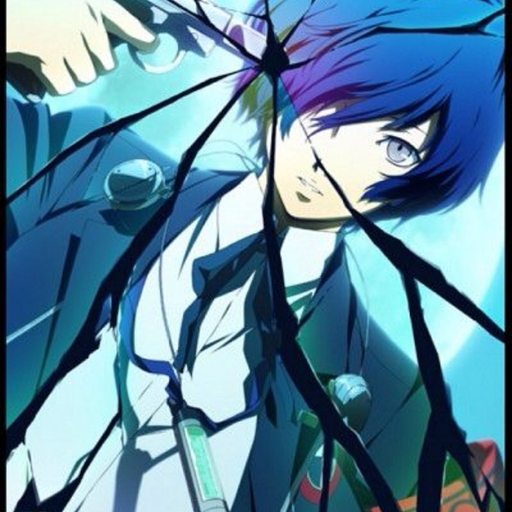After 10 years, Attack on Titan has finally come to an end, and I can’t muster any feeling towards it one way or the other.
Oh sure, there is a lot to say about the franchise as a whole and how it holds a special place in many an anime fan’s hearts. I’m just not one of them. It’s not that I think I have some higher moral authority on the matter or think that it’s overrated. In the modern-day anime industry, where almost everything has a toxic fandom that will attack anyone and everyone who criticizes their beloved franchise, I’m not even criticizing the show as a bad series. I’ve heard nothing but wonderful things about the series from fans who have followed it for all of those ten years. I gave it a shot years ago when it first came out, dropped it, and never felt the need to look back on it.
I guess you could consider this piece as me coming to terms with why I never cared about Attack on Titan. As someone who watches an unhealthy amount of anime on a weekly and monthly basis, why did a show like Attack on Titan never click with me, but weirder and probably more objectively poorer series like Happy Sugar Life did? I think the overarching reason has to do not only with the show itself but also with the state of the industry and the studios that would be involved with the production of it.

Make no mistake, I respect the hell out of what Attack on Titan did for the anime industry. From my own personal experience growing up, anime was always seen as being a niche interest. To an extent, that’s still true, but within the past decade, anime has become more and more mainstream and gained wider recognition outside of Japan. One of those reasons was primarily because of Attack on Titan and its release. The series began streaming on Crunchyroll five years after the streaming service launched in 2008, and while it wasn’t the series that catapulted it into the anime juggernaut it is today, that honor would probably go to Sword Art Online, it still pushed a ton of people to get Crunchyroll subscriptions back in the day. Even then, it made Netflix and Hulu dive headfirst into anime to capture some of that delicious Attack on Titan cake, which resulted in them having their own slew of anime productions.
I also have to commend the series for launching the studio that first began producing it, Wit Studio. The studio, established by former Production I.G. employees, put their heart and soul into Attack on Titan, which was the first production under their new studio. In that way, Attack on Titan could serve as a mission statement of sorts for Wit Studio and what they wanted to accomplish. They wanted to storm onto the anime scene and redefine what an anime was capable of. In retrospect, there’s no denying that the first episode of Attack on Titan did all of that and more. It’s an absolutely fantastic first episode of any show – anime or otherwise – sends a clear message about the premise of the show and the world its characters live in and almost demands viewers to stick around for more.
RELATED: Jujutsu Kaisen Manga Chapter Release Date Schedule
It was around October of 2013 that I got my Crunchyroll subscription, not for Attack on Titan, which was almost done with its first season, but for a series called Kill la Kill. I had heard about Attack on Titan all throughout the summer from friends and co-workers at the summer camp I worked at, saw the Survey Corps logo on plenty of jackets, and heard the amazing OP “Guren No Yumiya” on loop. So I gave the series a spin alongside the other Fall 2013 series and enjoyed the first episode a lot to the point where I began to slowly catch up to the first season. But as I got through more and more of the show, my focus shifted to those other Fall shows like Kill la Kill and Beyond the Boundary. It wasn’t because Attack on Titan was bad or conventional, but rather because I was bored by the characters.

Yes, I know that nowadays, many of the core cast members of Attack on Titan are beloved and go through wonderful arcs and have several layers of nuance to them, but back then, I found myself bored. I found Eren and Mikasa to be uninteresting, and the side characters were underutilized. I guess I had developed the perception that if this was going to be a series that killed its cast, I should give a damn about them, yet I wasn’t developing any emotional connections. Again, knowing what I know now, the show definitely does go into some out-there and somewhat subversive directions with its cast, but I’m someone who loves a good character drama, and Attack on Titan, at the time, just wasn’t doing anything for me, despite the universal praise and wonderful animation.
So the series kept trucking along, and I found myself becoming more invested in other shows, yet I was still aware of the success that Attack on Titan had earned. Even when fans were criticizing the show, which was somewhere around the third season, I think, I was still hearing plenty of recommendations for it. But by that point, the show was already fairly well established, with dozens of episodes to its name. It got to the point where it was on my backlog, but the show had become so large of a watch that I just kept becoming disinclined to watch it. Much like how I don’t really want to go back to Persona 5 because I know I will be spending over 100 years playing it, I also didn’t feel the need to spend precious hours of my day watching something that I knew I wasn’t a big fan of initially. Why would I invest my time into something I was originally mixed on?
So I stayed away from the series for a while, but then I started to hear about the series for a completely different reason. In 2019, Wit Studio, after three seasons, decided not to produce the show’s last season. To many, this was a shocking development as Wit Studio built their entire reputation thanks to Attack on Titan, and for the longest time, no one knew exactly why they did this. Recently, however, the founder of Wit Studio opened up about why they dropped the show, and the answer was that it became too demanding for them to produce. Not necessarily because the sequences were difficult to animate, even though they were, but actually making the series was too taxing.

The behind-the-scenes production of the first season of Attack on Titan was a nightmare. Yes, we hear all about how anime studios are essentially workhouses and staff are mistreated often (I’m looking at you, MAPPA), but Attack on Titan was especially chaotic. Wit essentially begged for animators as the show went on to help create the same kind of spectacle that was present in that first episode, and things were so down to the wire that episodes were turned in mere hours before they were set to air. There were year-long breaks between seasons to help the staff get some breathing room from the Titan-sized expectations of the series, but grueling work is still grueling work no matter how far apart they were. Plus, by this point, Wit had already grown to a point where they could take on other projects with less demanding production cycles that were less mentally draining than Attack on Titan. So they said farewell to the series that made them.
It was interesting to me to hear about this as an outsider because I interpreted that there were some problems with the series moving forward and that Wit knew something that we didn’t know at the time. Ultimately, it was for a better work-life balance for their staff, or at as good of a work-life balance that you can get in the anime industry, but I was curious to see who could fill those lofty shoes established by Wit. The answer, it turns out, would be… MAPPA. A studio that has no problem openly exploiting its workforce to diminishing effects.
I admit that when it comes to MAPPA and the seemingly endless negative stories about their working conditions, that just sealed the deal on why I wouldn’t bother with the series. We all have to choose our battles on what we support and don’t support, but this one is my personal line. Knowing what I know now, I feel weird watching their shows. And I admit, that is a bit of a hypocritical stance to take, especially given my enjoyment of some of their shows like Chainsaw Man and Jujutsu Kaisen. However, these feelings towards MAPPA are relatively recent and have tainted my opinions on the company as a brand. I can’t look at MAPPA animation anymore without thinking of how inhumane their practices are, much in the same way I can’t watch any Woody Allen movie without thinking of the allegations against him.

What made it even easier for me was the almost comical levels that this “final season” was split into multiple parts, then subdivided even further into smaller parts. I appreciate that MAPPA didn’t just try to fart out a conclusion and gave the animators time to create a worthy conclusion to the series, but I can’t enjoy the series, or at least the ending of the series, knowing that the people behind it were responsible for some of the worst conditions in the anime industry. I know it’s unfair to associate Attack on Titan with such an unfortunate company, but it’s still an association that can’t be overlooked. At least fans seemed to have been satisfied with the show’s finale, despite how it’s been drawn out to the point where calling it “the final season” has all but become a joke.
But the me of today is different from the me of 10 years ago. I’m no longer looking for the next big franchise to dive into and immerse myself in. At least, right now, I’m more interested in smaller and more interesting anime projects. Has anyone here seen Pluto? That show is just plain stellar. Plus, with other smaller titles disappearing into the cracks, I’m much more interested in watching anime that doesn’t have the massive and lofty expectations. That series isn’t going anywhere and has cemented itself as a bastion of the anime community for time immemorial. But I view it more as a symbol now than an actual show. Like how I don’t see myself ever rewatching Dragon Ball Z simply due to how long it is and how much it transcends the anime industry, Attack on Titan now occupies the same space. It’s a legend, but it’s something I can respect and appreciate for what it did rather than what it actually is.
Frame Jump is a monthly column on all things anime from Jesse Lab. If you want to read more Frame Jump, you can find all the articles published so far here.






Published: Nov 20, 2023 04:08 pm